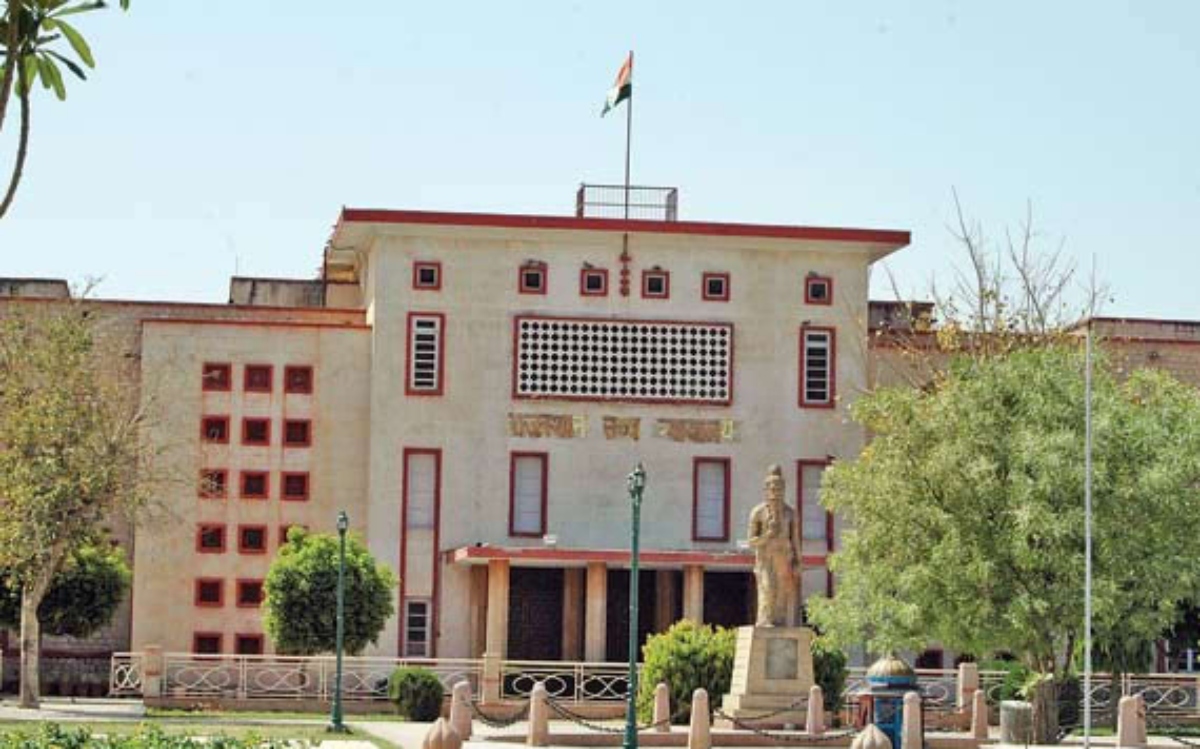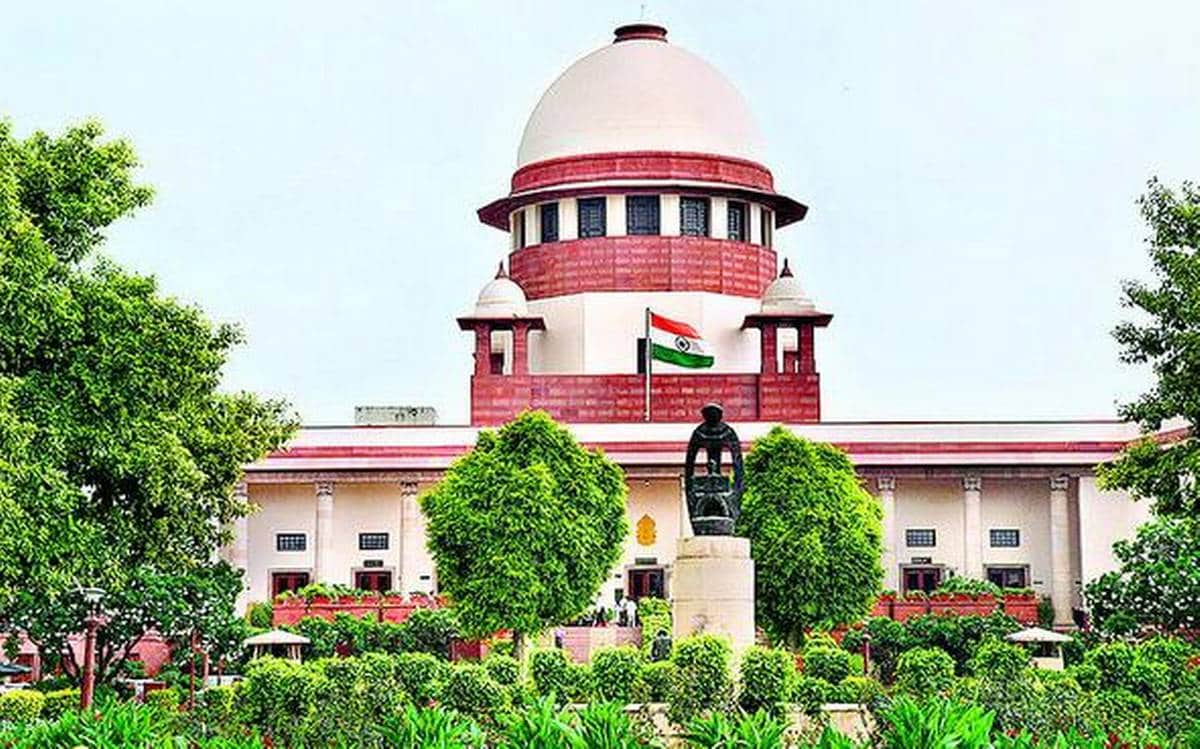I t would be in the fitness of things to mention right at the outset before stating anything else that in a very significant development, the Rajasthan High Court at Jodhpur in a learned, laudable, landmark and latest judgment titled Nand Lal through his wife Rekha v. State of Rajasthan in D.B. Criminal Writ Petition No. 10/2022 and cited in 2022 LiveLaw (Raj) 122 that was pronounced finally on April 5, 2022 has observed that the denial to the convict-prisoner to perform conjugal relationship with his wife more particularly for the purpose of progeny would adversely affect the rights of his wife. In this regard, the Court granted 15 days parole to the life convict. The Bench opined that Hindu philosophy also advocates the importance of pitrarin i.e. parental debt.
It was also added by the Court that our lives are the consequences of the fact that ancestors have been carrying and forwarding the said pitrarin, it is because of this, life came to us and in order to maintain the continuity of life, we must pay off this debt. To start with, this brief, brilliant, bold and balanced judgment authored by Justice Farjand Ali for a Bench of Rajasthan High Court comprising of himself and Justice Sandeep Mehta sets the ball rolling by first and foremost putting forth in the opening para that, “The instant writ petition has been preferred by convict prisoner Nand Lal through his wife Smt. Rekha seeking emergent parole under Rule 11 (1) (iii) of the Rajasthan Prisoners Release On Parole Rules, 2021 (hereinafter for short ‘the Rules of 2021’) on the ground of want of progeny.”
T o p u t t h i n g s i n perspective, the Bench then while stating briefly the facts of the case then observed in the next para of this notable judgment that, “Briefly stated the facts of the case are that the convict-prisoner Nand Lal is lodged at the Central Jail, Ajmer and is serving the sentence awarded to him by the learned Additional District & Sessions Judge No.1, Bhilwara vide judgment dated 06.02.2019. Till date, he has undergone imprisonment of around six years out of sentence of life imprisonment awarded to him including remission. Smt. Rekha, wife of the petitioner has moved an application addressing to the District Collector-cumChairman, District Parole Committee, Ajmer averring therein that conduct of his husband (convict-prisoner Nand Lal) had been exceedingly well in the jail premises and he was granted first parole by this Court for the period of 20 days vide order dated 18.05.2021, which he availed satisfactorily and surrendered back to the prison on due date. It is averred in the application that she has not begotten any issue from their wedlock and thus, for want of progeny, she craves for 15 days emergent parole.
The said application is pending consideration before the District Collector-cumChairman, District Parole Committee, Ajmer, however, no order has been passed therein till date. Thus, the convict-prisoner preferred the instant writ petition before this Court, through his wife Smt. Rekha.” As it turned out, the Bench then observes in the next para that, “Shri Anil Joshi, learned Additional Advocate-cum-Government Advocate has filed reply on behalf of the respondent State of Rajasthan. It is specifically averred in the reply that the case of the convict-prisoner does not fall within the ambit of Rule 11 of the Rules of 2021 and thus, grant of emergent parole has been objected. However, he too is not in a position to rebut the fact that work and conduct of the convict-prisoner has been satisfactory during his confinement in the prison.” In hindsight, the Bench then recalls that, “This Court vide order dated 10.03.2022 had directed learned AAG to instruct the police officials concerned to make an inquiry regarding family status of the convictprisoner and place the report on record. Shri Anil Joshi, learned AAG submitted a report as per which, Smt. Rekha is legally wedded wife of the petitioner and she is residing at her matrimonial home alongwith her in-laws.”
Needless to say, the Bench then states that, “Heard learned counsel for the parties. Perused the material available on record. After given our thoughtful consideration to the submissions advanced at Bar, our observations are as under:- It is not disputed that the convict-prisoner is married with Smt. Rekha and the couple has no issue out of their wedlock since their marriage till date. Having progeny for the purpose of preservation of lineage, has been recognized through religious philosophies, the Indian culture and various judicial pronouncements.” Practically speaking, the Bench then concedes that, “As mentioned above, the right of progeny can be performed by conjugal association, the same has an effect of normalizing the convict and also helps to alter the behaviour of the convict-prisoner. The purpose of parole is to let the convict to re-enter into the mainstream of the society peacefully after his release. The wife of the prisoner has been deprived of her right to have progeny whilst she has not committed any offence and is not under any punishment. Thus, denial to the convict-prisoner to perform conjugal relationship with his wife more particularly for the purpose of progeny would adversely affect the rights of his wife.”
As an aside, the Bench then also seeks to point out that, “Not only the humanitarian aspect as referred above, the right of progeny also finds mentioning in the religious scriptures and is mentioned in the literature available on various sites.” While dwelling on the religious angle in detail, the Bench then hastens to add that, “If we see the matter with the religious aspect; as per Hindu philosophy, Garbhadhan, i.e. attaining the wealth of the womb is the first of the 16 sacraments. Scholars trace Garbhadhana rite to Vedic hymns, such as those in sections 8.35.10 through 8.35.12 of the Rigveda, where repeated prayers for progeny and prosperity are solemnized. Bestow upon us progeny and affluence. In Judaism, Christianity, and some other Abrahamic religions, the cultural mandate is the divine injunction found in Genesis 1:28, in which God, after having created the world and all in it, ascribes to humankind the tasks of filling, subduing, and ruling over the earth. The cultural mandate includes the sentence “Be fruitful and multiply and fill the Earth.” The cultural mandate was given to Adam and Eve. The preservation of lineage is also greatly emphasized by the Islamic Shariah and the Cairo declaration of human rights in Islam also supported the protection of lineage in Islam. All the articles of CDHRI covered the five basic human rights mentioned in Maqasid I Shariah. The first main objective of Maqasid I Shariah is the completion of human’s necessity; in which protection of progeny (nasl) is the foremost purpose.” While dwelling on the sociological aspect, the Bench then envisages that, “Having referred to prevalent religious philosophies, now we come to the sociological aspect of the right of progeny and preservation of lineage. As regards the right of convict is concerned, connecting the same with Hindu philosophy, there are four Purusharths, object of human pursuit which refer to four proper goals or aims of a human life.
The four purushuarths are Dharma (righteousness, moral values) Artha (prosperity, economic values), Kama (pleasure, love, psychological values) and Moksha (liberation, spiritual values, self-actualization). When a convict is suffering to live in prison, he/she is deprived to perform the above mentioned purusharths, among them, 3 of four purusharths, i.e. Dharma, Artha and Moksha are to be performed alone, however, in order to perform/ exercise/pursue the fourth Purushartha, i.e. Kama, the convict is dependent on his/ her spouse in case he/she is married.” On a pragmatic note, the Bench then while dwelling on spouse condition minces no words to unequivocally observe that, “At the same time, the innocent spouse of the convict is also deprived to pursue the same. In a case where the innocent spouse is a woman and she desires to become a mother, the responsibility of the State is more important as for a married woman, completion of womanhood requires giving birth to a child. Her womanhood gets magnified on her becoming a mother, her image gets glorified and becomes more respectful in the family as well in the society. She should not be deprived to live in a condition wherein she has to suffer living without her husband and then without having any children from her husband for no fault of her.” While dwelling on pitrarin, the Bench then underscores holding that, “Hindu philosophy also advocates the importance of pitrarin, i.e. parental debt. Our lives are the consequence of the fact that ancestors have been carrying and forwarding the said pitra rin, it is because of this, life came to us and in order to maintain the continuity of life, we must pay off this debt.”
Be it noted, the Bench while dwelling on legal aspect on a candid note then holds that, “Now coming to the legal aspect of the matter at hand, Article 21 of the Constitution guarantees that no person shall be deprived of his life and personal liberty except according to procedure established by law. It includes within its ambit the prisoners also. The Supreme Court in the case of D. Bhuvan Mohan Patnaik and Others v. State of Andhra Pradesh and Others AIR 1974 SC 2092 declared that convicts cannot be denied the protection of fundamental rights which they otherwise possess, merely because of their conviction.” Quite pertinently, the Bench then while referring to a relevant case law opined that, “In the case of Jasvir Singh and Another v. State of Punjab 2015 Cri LJ 2282, The case involved important questions of law regarding conjugal rights of the prisoners. The core issues in the case were (i) whether the right to procreation survives incarceration, and if so, whether such a right is traceable within our Constitutional framework? (ii) Whether penological interest of the State permits or ought to permit creation of facilities for the exercise of right to procreation during incarceration? (iii) Whether ‘right to life’ and ‘personal liberty’ guaranteed under Article 21 of the Constitution include the right of convicts or jail inmates to have conjugal visits or artificial insemination (in alternate)? And (iv) If question No. (iii) is answered in the affirmative, whether all categories of convicts are entitled to such rights?” I n r e t r o s p e c t , t h e Bench then laid bare that, “The court had ruled that the “right to procreation survives during incarceration” and “is traceable and squarely falls within the ambit of Article 21 of our Constitution”. It had then directed the Punjab government to constitute a Jail Reforms Committee, to be headed by a former high court judge. Among other things, this committee was to “formulate a scheme for creation of an environment for conjugal and family visits for jail inmates and identify the categories of inmates entitled to such visits, keeping in mind the beneficial nature and reformatory goals of such facilities”.”
Most commendably and also most significantly, the Bench then holds that, “In view of the fact that the spouse of the prisoner is innocent and her sexual and emotional needs associated with marital lives are affected and in order to protect the same, the prisoner ought to have been awarded cohabitation period with his spouse. Thus, viewing from any angle, it can safely be concluded that the right or wish to have progeny is available to a prisoner as well subject to the peculiar facts and circumstances of each case. Simultaneously, it is also found apposite to hold that the spouse of the convict-prisoner cannot be deprived of his or her right to get progeny.” As a corollary, the Bench then enunciates that, “As an upshot of the observations made herein above, we are of the considered view that though there is no express provision in the Rajasthan Prisoners Release On Parole Rules, 2021 for releasing the prisoner on parole on the ground of his wife to have progeny; yet considering the religious philosophies, cultural, sociological a n d h u m a n i t a r i a n aspects, coupled with the fundamental right g u a r a n t e e d b y t h e Constitution of India and while exercising extra ordinary power vested in it, this Court deem it just and proper to allow the instant writ petition.” Finally, the Bench then concludes by holding that, “Accordingly, the instant writ petition is allowed.
The convict-petitioner Nand Lal S/o Shri Arjun Lal shall be released on emergent parole for a period of fifteen days from the date of his release provided he furnishes a personal bond in the sum of Rs 50,000 along with two surety bonds of Rs 25,000 each to the satisfaction of the Superintendent, Central Jail, Ajmer on usual terms and conditions. The Superintendent, Central Jail, Ajmer shall be at liberty to impose other adequate and reasonable conditions to ensure return of the convict-prisoner to the custody after availing the parole. His term of parole shall be computed from the date of his actual release. The parole writ petition is allowed accordingly.”
In sum, the Rajasthan High Court has minced no words to hold that denial to prisoner to perform conjugal relation for progeny would adversely affect rights of his wife. Keeping this in view, the Rajasthan High Court granted 15 days parole to life convict. It is a very pragmatic, purpose driven and practical judgment which has taken great care to ensure that the rights of the wife is safeguarded which is quite ostensible also even if we take a cursory look at it. It merits no reiteration that all the courts must always in similar such cases try to emulate such purpose driven judgments which have a great impact on the rights of the wife who has to practically undergo so much of sufferings all by herself! There can be just no denying it!


 Opinion3 years ago
Opinion3 years ago
 Entertainment8 years ago
Entertainment8 years ago
 Entertainment8 years ago
Entertainment8 years ago
 Fashion8 years ago
Fashion8 years ago
 Opinion4 years ago
Opinion4 years ago
 Entertainment8 years ago
Entertainment8 years ago
 Politics8 years ago
Politics8 years ago
 Entertainment8 years ago
Entertainment8 years ago








